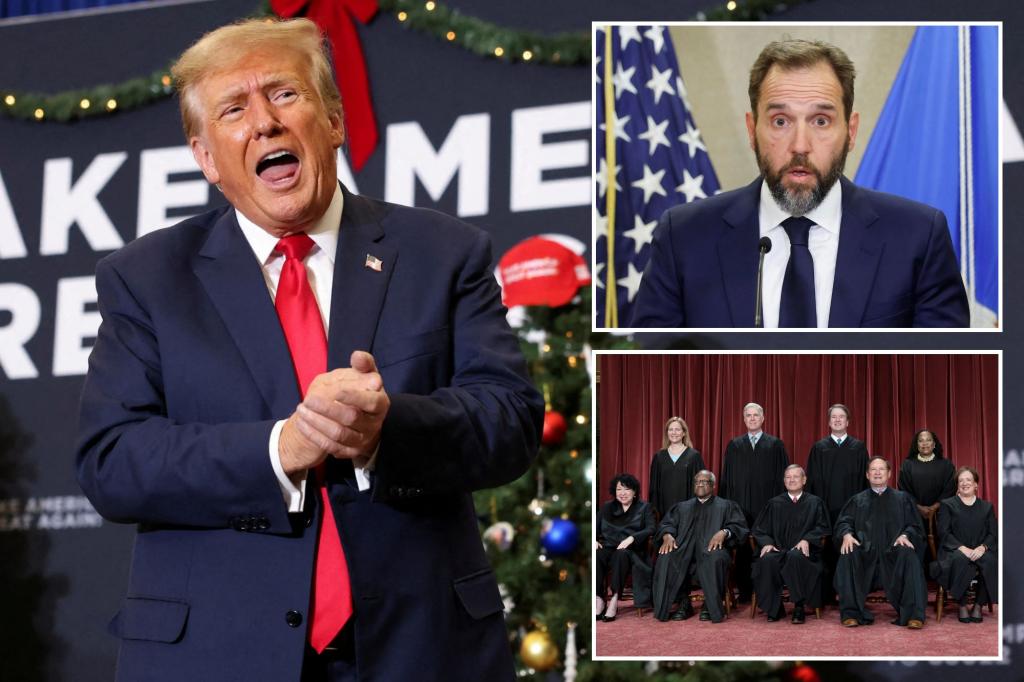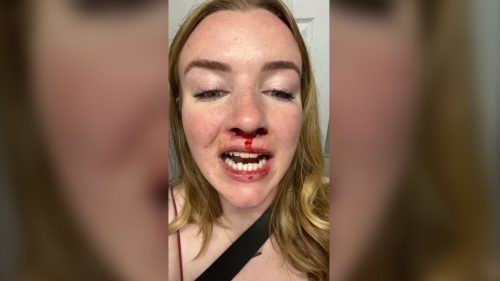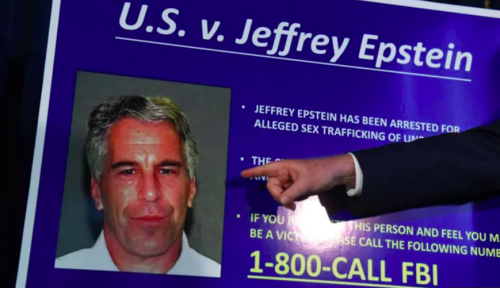In a landmark decision, the Supreme Court has affirmed that sitting presidents are covered by limited immunity for actions performed within their official capacity.
This ruling marks a significant victory for former President Donald Trump, who has been embroiled in numerous legal battles since leaving office.
The decision underscores the judiciary’s interpretation of presidential powers and sets a precedent that will influence future legal considerations concerning executive actions.
The Supreme Court’s ruling was met with mixed reactions, with conservative circles hailing it as a reinforcement of the separation of powers and the necessary protections for the executive branch to function effectively. The court’s opinion emphasized that while no one is above the law, the unique role of the president requires certain immunities to ensure the unimpeded execution of their duties.
The Court’s Decision
In a detailed opinion, Chief Justice Roberts, writing for the majority, outlined the nuanced understanding of presidential immunity. The Court recognized that while a President may have absolute immunity from criminal prosecution for actions within his “exclusive sphere of constitutional authority,” this immunity does not extend to unofficial acts or actions shared with Congress.
Main Points in the Ruling:
- Absolute Immunity for Core Constitutional Powers:
- The Court reaffirmed that a President enjoys absolute immunity for actions taken within the scope of his exclusive constitutional powers, such as pardoning authority or foreign recognition decisions. This is to ensure that the President can perform his duties without fear of criminal prosecution undermining his ability to act decisively and, in the nation’s, best interests.
- Presumptive Immunity for Other Official Acts:
- For actions that fall within the outer perimeter of presidential responsibilities but are not exclusive constitutional powers, the Court granted at least a presumptive immunity. This means that while the President is generally protected from prosecution for these acts, this immunity can be challenged if the government can demonstrate that prosecuting these actions does not intrude on the executive branch’s functions.
- No Immunity for Unofficial Acts:
- The ruling made it clear that unofficial acts, even if performed while in office, do not enjoy immunity. This part of the decision aligns with previous rulings, such as in Clinton v. Jones, which determined that a sitting President is not immune from civil litigation for unofficial conduct.
Trump’s Response
Former President Trump, who has frequently cited presidential immunity in his defense against various lawsuits, responded to the ruling with enthusiasm. In a statement, Trump remarked, “The Supreme Court totally dismantled most of the charges against me. Joe Biden should now call off his “dogs.” Our Country should now be focused on GREATNESS again!

Trump also posted: “Today’s Historic Decision by the Supreme Court should end all of Crooked Joe Biden’s Witch Hunts against me, including the New York Hoaxes – The Manhattan SCAM cooked up by Soros backed D.A., Alvin Bragg, Racist New York Attorney General Tish James’ shameless ATTACK on the amazing business that I have built, and the FAKE Bergdorf’s “case.” PROUD TO BE AN AMERICAN!”

Trump’s legal team has argued that many of the actions under scrutiny were conducted in his capacity as president, and thus should be protected by immunity. This ruling is expected to bolster their position in ongoing and future legal challenges.
Implications and Reactions
The implications of this decision are profound, affecting not only the current political landscape but also shaping the contours of presidential power for years to come. Legal scholars and political analysts are dissecting the ruling to understand its full impact. For conservatives, the ruling is seen as a necessary safeguard for the executive branch, ensuring that the president can operate without undue interference from the judiciary or legislative branches.
The U.S. Supreme Court subsequently threw out a judicial decision rejecting Donald Trump’s bid to shield himself from federal criminal charges involving his efforts to overturn his 2020 election loss in a major ruling on Monday involving the scope of presidential immunity from prosecution.
Critics, however, argue that this ruling could potentially allow presidents to act with impunity, knowing they are shielded from legal consequences for their official actions. They caution that this could lead to abuses of power, undermining the principles of accountability and checks and balances that are foundational to the American political system.
Analysis of the Ruling
The Supreme Court’s decision draws heavily from historical precedents and the framers’ intent. The court referenced the landmark case of Nixon v. Fitzgerald, which established the precedent for presidential immunity from damages liability for official acts. By reinforcing this precedent, the court has solidified the doctrine that the president’s unique position requires certain legal protections to maintain the stability and functionality of the executive office.
Chief Justice Roberts, in his opinion, noted that while this immunity is critical, it is not an endorsement of unchecked presidential power. “This immunity is bounded by the nature of the official acts and does not extend to actions taken outside the scope of presidential duties,” he clarified.
Conservative Perspective
From a conservative standpoint, this ruling is a reaffirmation of the importance of a strong executive branch capable of decisive action without the constant threat of litigation. The decision is seen as a protective measure against frivolous lawsuits that could distract or hinder a president from performing their duties. It underscores the need for a balance between holding leaders accountable and allowing them the freedom to govern effectively.
Future Considerations
The Supreme Court’s ruling will undoubtedly influence future legal battles involving presidents and their actions. It sets a precedent that will be referenced in cases where the boundaries of presidential immunity are tested. For Trump, this decision provides a robust defense against the numerous lawsuits he faces, potentially altering the course of these legal proceedings.
Legal experts anticipate that this ruling will prompt further discussions about the scope and limits of presidential immunity. It raises important questions about how to balance the need for accountability with the necessity of protecting the executive branch’s functionality.
Conclusion
The Supreme Court’s decision to affirm limited immunity for presidents regarding their official acts is a significant legal milestone. It reflects a conservative interpretation of the Constitution and the necessity of shielding the president from incessant litigation. This ruling not only impacts former President Trump but also sets a crucial precedent for the office of the president, reinforcing the separation of powers and the independence of the executive branch. As legal and political debates continue, the ramifications of this decision will be closely watched and analyzed by scholars and practitioners alike.



